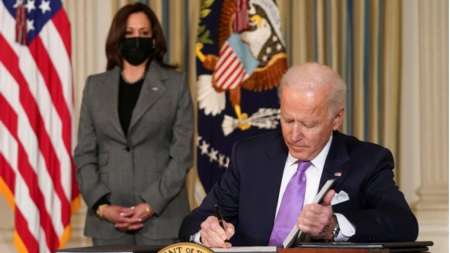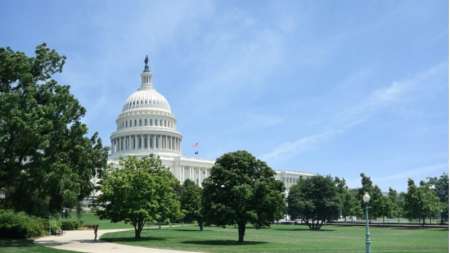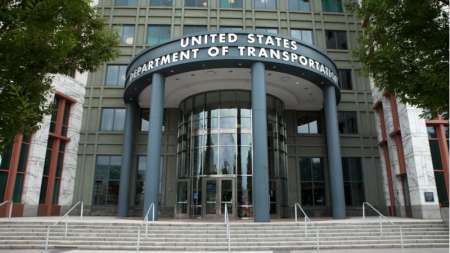After its passage by the House of Representatives Nov. 5, President Biden plans to sign the Infrastructure Investment and Jobs Act on Monday, Nov. 15, authorizing billions of new funding for broadband and cybersecurity, in addition to traditional infrastructure, the administration announced Nov. 10. […]
After more than two months of angling and dealmaking, the House of Representatives voted to approve the $1 trillion Infrastructure Investment and Jobs Act – also known as the Bipartisan Infrastructure Framework – on November 5, sending the bill along with its $2 billion in cyber funding and $65 billion in broadband appropriations to President Biden’s desk for final approval. […]
The House of Representatives is expected to hold votes on its fiscal year (FY) 2022 reconciliation package – known as the Build Back Better Act (BBB) – as well as the Infrastructure Investment and Jobs Act – or the Bipartisan Infrastructure Framework (BIF) – today after the House Rules Committee finalized a rule for debate on the now $1.75 trillion “soft” infrastructure legislation late on Nov. 4. […]
President Biden signed H.R. 5763 into law on Oct. 31, extending authorization for the Department of Transportation’s Surface Transportation Programs until Dec. 3 – and effectively providing more time for Congress to consider two big pending infrastructure bills that contain billions of dollars of tech and cyber-related items. […]
The Democratic leaders of the House and Senate made official over the weekend what had become obvious by late last week: the hoped-for late September votes on two big Federal infrastructure funding bills were sliding into October. […]
Crumbling bridges and leaky levees. Buckling roadways. Unsafe water pipes. Inadequate public transit. The list of U.S. infrastructure failings is both broad and deep. The United States is paying only about half of its necessary infrastructure bill, and the total investment gap has grown from $2.1 trillion over 10 years, to a current figure of nearly $2.59 trillion over 10 years, according to the American Society of Civil Engineers. As a result, local government leaders face staggering infrastructure requirements that local tax revenues cannot fulfill. […]






